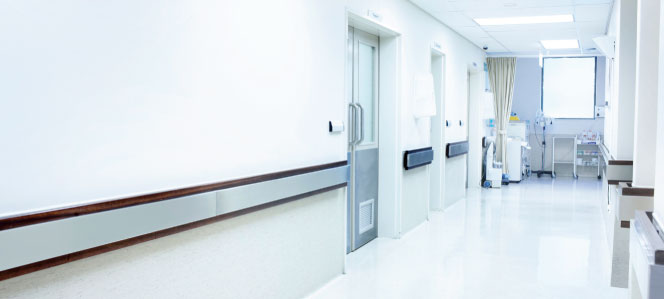Last week I spent six days at a place only about a ten-minute drive from my home, but I had, nevertheless, entered a country as “foreign” to my experience as Botswana or Katmandu. You see, I had taken up residence in Hospitalland. I will spare you all of the gory details, but I was brought in for an emergency appendectomy and then had to undergo a second surgery, due to complications. As a priest, of course, I had visited Hospitalland many times, but I had never actually lived in it for an extended period. Hospitalland has its own completely unique rhythms, customs, language, and semiotic systems. Adjusting to it, consequently, is as complex an undertaking as adjusting to Vienna, Paris, or Tokyo.
For example, the normal rhythm of day and night is interrupted and overturned in Hospitalland. You are only vaguely aware of the movement of the sun across the sky, and people come barging into your room as regularly at two in the morning as two in the afternoon. I found myself frequently asking visitors not only the time of day, but also whether it was morning or evening. Relatedly, the usual distinctions between public and private simply evanesce in Hospitalland. As my mother told me many years ago, upon returning from a long visit to that country, “When you enter the hospital, you place your modesty in a little bag and leave it by the door. Then you pick it up when you go home.” Nurses, nursing aides, medical students, doctors, surgeons, tech assistants—all of them have license to look over any part of your anatomy, pretty much whenever they want. At first, I was appalled by this, but after a few days, I more or less acquiesced: “Anyone else out there that would like to take a look?” Hospitalland has its own very distinctive language, largely conditioned by numbers: blood pressure rates, temperature, hemoglobin counts, etc. It was actually a little bit funny how quickly I began to banter with the nurses and doctors in this arcane jargon.
But for me the characteristic of Hospitalland is passivity. When you pass through the doors of the hospital, you simply hand your life over to other people. They transport you, clean you, test you, make you wait for results (an excruciating form of psychological torture, by the way), tell you what you have to undergo next, poke you, prod you, take blood out of you, and cut into you. And when you are at your wits’ end, frustrated beyond words, so eager to get home that you can taste it, you have to wait for them to give you permission to leave. You place your modesty in a little bag by the door when you enter the hospital, and you put your autonomy in that same container.
And this is of more than merely psychological interest. It has, indeed, far-reaching spiritual implications. As I lay on my back in Hospitalland, a phrase kept coming unbidden into my mind: “the divinization of one’s passivities.” This is a line from one of the great spiritual works of the twentieth century, The Divine Milieu by the French Jesuit Pierre Teilhard de Chardin. In that seminal text, Teilhard famously distinguished between the divinization of one’s activities and the divinization of one’s passivities. The former is a noble spiritual move, consisting in the handing over of one’s achievements and accomplishments to the purposes of God. A convinced Jesuit, Teilhard desired to devote all that he did (and he did a lot) ad majorem Dei gloriam (to the greater glory of God). But this attitude, Teilhard felt, came nowhere near the spiritual power of divinizing one’s passivities. By this he meant the handing over of one’s suffering to God, the surrendering to the Lord of those things that are done to us, those things over which we have no control. We become sick; a loved one dies suddenly; we lose a job; a much-desired position goes to someone else; we are unfairly criticized; we find ourselves, unexpectedly, in the valley of the shadow of death. These experiences lead some people to despair, but the spiritually alert person should see them as a particularly powerful way to come to union with God. A Christian would readily speak here of participating in the cross of Christ. Indeed how strange that the central icon of the Christian faith is not of some great achievement or activity, but rather of something rather horrible being done to a person. The point is that suffering, offered to God, allows the Lord to work his purpose out with unsurpassed power.
In some ways, Teilhard’s distinction is an echo of St. John of the Cross’s distinction between the “active” and “passive” nights of the soul. For the great Spanish master, the dark night has nothing to do with psychological depression, but rather with a pruning away of attachments that keep one from complete union with God. This pruning can take a conscious and intentional form (the active night) or it can be something endured. In a word, we can rid ourselves of attachments—or God can do it for us. The latter, St. John thinks, is far more powerful and cleansing than the former.
I do believe that my stay in the foreign country of Hospitalland had a good deal to do with the divinization of my passivities and with the passive night of the soul. I certainly wouldn’t actively seek to go back to that land, but perhaps God might send me there again. May I have the grace to accept it as a gift.
